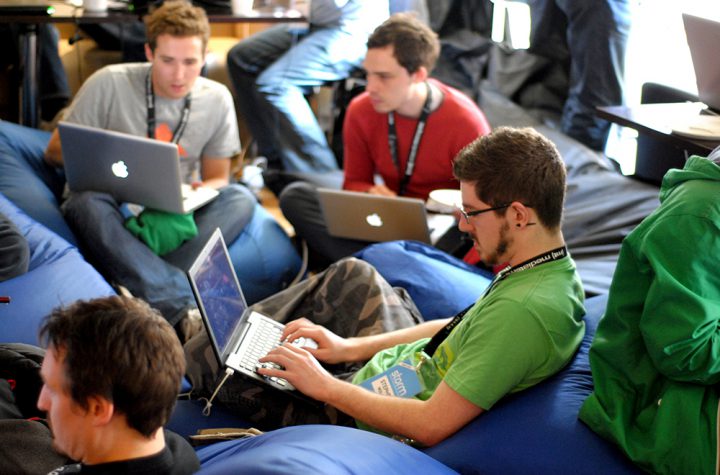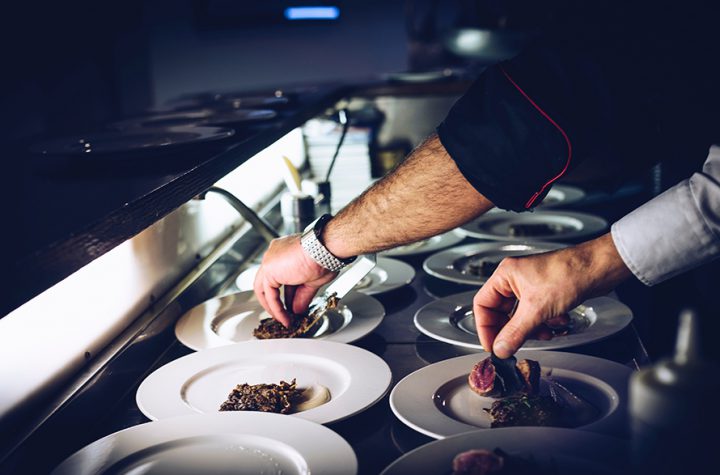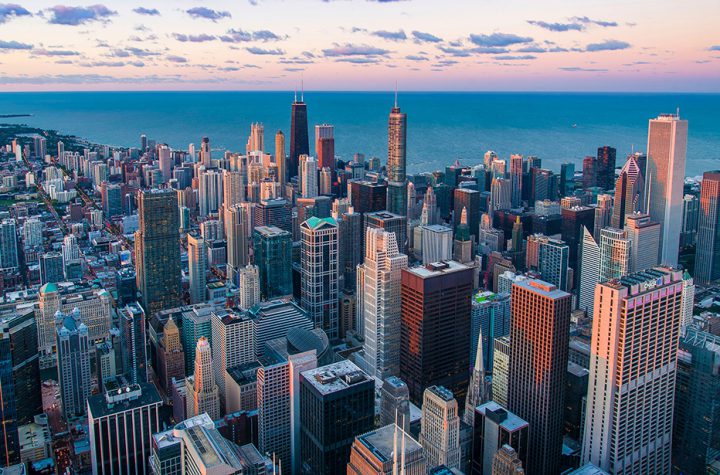
Illustration by The Globe and Mail
Adrian Lee is an editor in The Globe and Mails Opinion section.
I was sick last week.
It was nothing serious just a nagging cough and clogged-up head. And it was over before it really began: Aggressive doses of extra-strength medicine knocked it out of me after a couple of nights. I was nothing more than one of the thousands of Canadians who, at any given time, are battling a little sniffle or scratchy throat.
Story continues below advertisement
Except I wasnt.
Last weekend brought the announcement of the first case of a novel coronavirus (2019-nCoV) in Ontario, where a 17-year-old epidemic of severe acute respiratory syndrome (SARS) remains only lightly buried in the graveyard of our collective memory. On Tuesday, British Columbia reported its first positive test for 2019-nCoV. On Thursday, the World Health Organization designated the coronavirus outbreak as a global health emergency. And early cases have been linked to the city of Wuhan, where about a third of the worlds cases are located, in central China a country that is increasingly being inescapably writ onto the skin of the two million Chinese-Canadians like me.
The memory that affirmed that reality for me is lightly buried, too. In 2003, I an eighth-grade nerd just looking to commute from the suburb of Richmond Hill, Ont., where nearly one-third of residents now identify as Chinese, to my downtown Toronto high school was among the Chinese-Canadians who were treated like an alien because of SARS fears.
I remember the weight of the textbook-laden backpack I was trucking that morning. I remember the gratitude I felt when I saw a seat open up on the subway car. And I remember that Id barely settled into it when the person next to me bolted up, put a mask on his face, and backed away. I remember how he stared at me with disgust.
In that instant, in that mans eyes, a random kid a boy born in Torontos now-shuttered Wellesley Hospital to remarkable parents who immigrated here from Hong Kong for school; a boy who had visited the former British colony just twice and grudgingly, given my pubescent dismissiveness toward my Chinese culture in pursuit of half-baked notions of Western cool; a boy who was (embarrassingly, I can now say) repulsed by overt markers of his background, from Chinglish stumbles to smelly lunches was boiled down into his essential parts. That is to say: he saw me as Chinese by both of the words definitions. I was ethnicallyChinese Han, to be precise, as 92 per cent of Chinas population is. I was therefore, in his panic-blinded eyes, fromChina, and because of my bodys presumed geographic proximity, I was an inherent health risk, even though I was born and forged in Canada.
In that moment, and in all the others before and since, I was trying to just be what I was and am: a Chinese-Canadian. But that was the first time in which someone had denied me that second part of that identity. To that man, there was a hard dividing line in the hyphen between Chinese and Canadian, as if “Canadian was an ethnicity. I couldnt really be the second because of the fluctuating freight of the first.
For centuries, Chinese-Canadians have faced ethnic stereotyping. But when SARS struck, I couldnt escape the brand-new clichés that were being inaccurately projected onto the visible colour of my skin: broad ideas and sometimes-thin opinions about China, the country. So this past week, even as others coughed and sniffled around me on buses and subways, I stifled any hint of my slight sickness. I didnt want people to notice the Chinese person who was sick, because I knew from my own experience that this could make me suddenly and painfully foreign. I know I wasnt alone.
Story continues below advertisement
A man wears a mask on a Toronto streetcar on Jan. 28, days after the first Canadian coronavirus cases were reported in the city.
Carlos Osorio/Reuters
Just as was the case when SARS struck, some Canadians seem to be steering clear of people who appear ethnically Chinese.
Tonny Louie, the chair of the Toronto Chinatown Business Improvement Area, told The Globe and Mail he noticed a downturn this week, invoking memories of empty dim sum restaurants and plummeting sales in places like Pacific Mall, North Americas largest Chinese indoor shopping centre.
Stories from Chinese-Canadians about being avoided in public spaces have flashed through social media, amid some clamour for panicked, over-broad quarantines, echoing an Ipsos poll early into the 2003 epidemic that found that two-thirds of Canadians wanted individuals arriving from SARS-affected areas to lose their freedom of movement or not be allowed into the country.
And with preposterous conspiracies flying including baseless ethno-nationalist accusations that the coronavirus was developed as a bioweapon by the Chinese state or was stolen by Chinese scientists from a Winnipeg lab a woman eating bat soup has quickly become the defining image with which some ignorant online hecklers have responded to the outbreak.
Thats despite the fact that the woman in question, a blogger from China, ate the bat three years ago; the fact that bat soup is not a widespread delicacy in China, but more so in places like Palau, where the video was shot; the fact that there is not yet a direct scientific link between the coronavirus and bats specifically, but rather more broadly to the exotic wildlife sold illegally in a Wuhan seafood market; the fact that polling suggests Chinese citizens are keenly aware of the national problem of food-safety standards; and the fact that Chinese cuisine hardly owns the monopoly on unusual foods as if the West does not savour, say, the livers of force-fattened geese.
These reversions to our basest racial clichés that being Chinese is the same as being unclean did not happen by accident. There is a long legacy of this here, and the speed with which these fears have spread just reveals how close to the surface irrational racism sits, and how easily it can be channelled by well-intentioned but poisonous panic.
Tony Lyu buys two boxes of N95 masks at Rotblott’s Discount Warehouse in Toronto.
Fred Lum/The Globe and Mail
But the coronavirus backlash is just part of the current toxic stew of fear, suspicion, and resentment of Chinese-Canadians. And as a result, the line that halves the definition of the term Chinese-Canadian” threatens to become even thicker erasing the identities and histories of those who, regardless of their individual opinions on the matter, have nothing to do with the Peoples Republic of China or the Chinese Communist Party (CCP).
Chinese-Canadians are Chinese, yes, but we are Canadian. The distinction needs to be made. Otherwise, the complicated reality of individuals in the diaspora could be lost, and both hoary, centuries-old racial fears as well as any equally irrational and unfair suspicions of the geographic, political and national-security threats that an ascendant nation of China represents to some, could be imposed on anyone who looks Chinese.
Theres this thinking of, Youre all Chinese Hong-Kong Chinese, third-generation born here, doesnt matter youre all visually the same, ” said Henry Yu, a professor of history at the University of British Columbia.
Its, were ascribing to you, the Chinese, all the things we dont like about China too.
And if this is left unaddressed as has largely happened, over the course of two centuries broad Sinophobia can fester, potentially setting the foundation for irrational fear to turn into discrimination and for that to harden into social fact.
Toronto, 1945: The Republic of China and British flags wave above a Chinatown street where crowds gathered to celebrate the Allies’ defeat of Japan. At this time, Chinese immigration to Canada was effectively banned. Previously, from 1885 to 1923, newcomers from China were charged a head tax of $50 to $500 per person. Both policies were explicitly racist, designed to favour white immigrants over Asian ones.
The Globe and Mail
Toronto, 2003: Prime minister Jean Chretién has tea with members of the Chinese community as a gesture of goodwill during the SARS crisis. Chinese restaurants reported a drop in business that they attributed to panic over the disease.
Fred Lum/The Globe and Mail
Toronto, 2006: Chinese-Canadians hold signs and speak to the media at Union Station as several set off for Ottawa, where prime minister Stephen Harper formally apologized for the Chinese head tax.
J.P. Moczulski/The Globe and Mail
History has long told Chinese-Canadians that our identity is whatever Canadians allow it to be. The red line was thick when Canadas federal government banned ethnic Chinese migrants, regardless of nationality, for more than two decades, or when it imposed a head tax to discourage their arrival, or when Chinese immigrants were ghettoized in cheaper, dangerous shanty communities, later glorified as Chinatowns.
From the 19th century and into the 20th, the bright red line made the idea that we could be Canadian impossible. We were merely and, to many, despicably Chinese, prevented from joining up with the nationality we sought; even after we became citizens by law, we were denied the franchise as recently as 1947. The Yellow Peril the idea that we represent an existential threat to white labourers and societies because of some kind of inherent work ethic, or that we are dirty dealers in iniquity and therefore unworthy of the West was a fear that, even in its name, chained itself to the colour they used to describe our skin.
As the decades passed, that began to change. Chinese families represent the largest ethnic group of Asian Canadians, who in turn comprise more than a fifth of Canadas population. We are Olympic medallists, members of Parliament and veterans, and like any diaspora here we have worked to weave our way into the knotty national fabric.
But increasingly, Chinese-Canadians ethnicity is becoming bound up with the actions of a state that is being seen as a threat to the Western world.
The narrative of an ascendant China has loomed since the late 1980s and as Beijing becomes more emboldened, the view of the Chinese as a people has become pitched, too. According to a Nanos poll from 2012 well before the heights of the geopolitical rivalry we see today a plurality of respondents said that China posed the greatest threat to Canadas national security.
A looming decision on whether Ottawa will allow major Chinese telecom-equipment maker Huawei to build part of Canadas 5G wireless-network infrastructure has cast a spotlight on the rising perception that Chinese investment is nefarious. Huawei insists that it does not act on behalf of the Chinese government, but as a private company its difficult to accept this on purely good faith, particularly given the warnings from intelligence agencies. That has affected views at large: In December, an Angus-Reid poll found that 69 per cent of respondents were against Ottawa allowing the firms contributions, but also that 66 per cent of respondents had a negative view of China.
Story continues below advertisement
Huawei executive Meng Wanzhou attends the first day of her Vancouver extradition hearings.
Jane Wolsak/Reuters
Then add in the case of Meng Wanzhou, the Huawei executive who faces extradition to the U.S. on criminal charges after her arrest in Vancouver. Canadians of Chinese descent who, regardless of our decidedly non-monolithic array of individual and hard-won opinions about the Chinese state, might be uninterested in being automatically bundled up into something most of us have no personal stake in have been caught firmly in the middle.
Beijings response has only made things worse. After Ms. Mengs arrest, China detained Canadian diplomat Michael Kovrig and businessman Michael Spavor on charges of espionage, and banned imports of vital Canadian canola. These cruel actions are the Chinese states to bear, but it can be easier to confuse ethnicity and nationality every day the high-profile case absorbs front-page headlines.
This isnt all that surprising, since the Chinese Communist Party has a habit of complicating things for and hooking itself to the whole cloth of the Chinese-Canadian diaspora, whether we like it or not. Last August, the CCPs Central Committee publicly urged people of Chinese background in nations like Canada what Beijing calls overseas Chinese to remember the call from the Party and the people and spread Chinas voice. And an April report from the National Security and Intelligence Committee of Parliamentarians specifically flagged the ways Beijing mobilizes the diaspora to help their efforts. China is known globally for its efforts to influence Chinese communities and the politics of other countries,” it said. “The Chinese government has a number of official organizations that try to influence Chinese communities and politicians to adopt pro-China positions.
Even though some experts and a parliamentary panel have stated that the diaspora has proven largely immune to pressure, the suspicions being engendered certainly make it harder to distinguish between the ethnicity and nationality of Chinese-Canadians. In fact, that slippery slope makes it all the easier for some opposition to the Chinese government to potentially veer toward racial criticisms, the way conspiratorial anti-Semitism can occasionally be smuggled under the flimsy scrim of criticism of Israel.
Pro-China protesters wave Chinese flags in Vancouver last August to counter supporters of the Hong Kong pro-democracy movement.
Darryl Dyck/The Canadian Press
To some degree, suspicion of foreigners is a natural consequence of national-security apparatuses identifying states as threats. But Richard Fadden, the head of the Canadian Security Intelligence Service from 2009 to 2013, says the agency was hyper-aware of avoiding any messaging that conflated bad actors in a community with the broader group itself.
Still, the idea that active Sinophobia could eventually take root in Canada is worrisome, Mr. Fadden said in an interview. “Not because tomorrow there will be violence, but that, as with anti-Semitism, this could grow under the radar.
Story continues below advertisement
But while politicians and security organizations must tread carefully, thats not where the real work will have to be done. Thats on us Canadians. CSIS can manage the message,” he said. “But they cant control how Canadians think.
And then theres the growing resentment against the Chinese, perhaps best expressed by Vancouvers housing crisis. Multiple reports have laid the blame for the citys unaffordable housing market on foreign ownership, mostly from China. In response, the government imposed a 2016 tax on foreign buyers, and later, a speculation tax.
The evidence behind these measures, however, is murky. In the 14 months after the foreign-buyers tax came into force, the percentage of home purchasers in Metro Vancouver who werent Canadian citizens, permanent residents or who didnt have work permits plunged from 14.8 per cent to an average of 3.23 per cent; affordability remains an issue. And so when there are headlines like Vancouvers hot housing market just got tougher for wealthy Chinese or “Vancouver has been transformed by Chinese immigrants, its little wonder that the word Chinese has begun to lose all sense of meaning.
The construction of the bogeymen of greedy, uber-wealthy Chinese and the over-stated prevalence of their tax-dodging satellite families are animated by a similar fear as the one that spurred Yellow Peril: the idea that these people are coming here to out-compete Canadians and take what isnt theirs. And it has neatly folded into the existing archetypes people can reach for in times of panic much as the image of bat soup has.
Vancouver, 1912: A welcome banner hangs from a Chinese arch at Pender and Carrall streets for the governor-general of the day, the Duke of Connaught. By this time, Vancouver was home to the largest Chinese community in Canada, and a prosperous port thanks to the Canadian Pacific Railway that a mostly Chinese work force built in the 1880s.
City of Vancouver Archives
Vancouver, 2020: Ms. Meng sets off for a court date from her multimillion-dollar home in the Dunbar neighbourhood, the larger of two properties she and her husband own. The perceived comfort of Ms. Meng’s house arrest has added fuel to Vancouver’s long-simmering debate about foreign ownership in the housing market, in which wealthy Chinese are often treated as bogeymen.
Jeff Vinnick/Getty Images
Vancouver, 2020: A woman wears a facemask while watching the Chinese New Year parade on Jan. 26. Two days later, B.C. would announce its first presumptive case of the 2019-nCoV coronavirus.
Darryl Dyck/The Canadian Press
The expression of racism Ive experienced most has happened to me no fewer than seven times, in three different Canadian cities: someone passing me by, in a car or a bike or on a streetcar, yells that I should go back to China.”
Story continues below advertisement
Every time, its blunt-force and baffling, a thunderbolt from the blue that leaves me feeling powerless; one of the first times it happened, I tried to chase the offending car up a hill, until my rational brain kicked back in: what exactly did I plan on doing, if I somehow caught up? Sometimes, the cruelty is even delivered in its bare-bones shorthand just China!” but the signal being sent is clear regardless: my status as a visible minority, which beams out from my skin, my face, and how I look, suggests that this is not my nation.
Its that line, again. A line I dont get to control, erasing the contours of the person I am.
We all have to talk about it and that includes Chinese-Canadians. If we dont discuss the line that imperils Chinese-Canadians of all provenances those whose families and perspectives are rooted in Hong Kong, or mainland China, or Taiwan we risk creating factions within our own group. In high school, my Canadian-born-Chinese friends and I would joke about the Chinese international students even though most of us were friends in order to dissociate ourselves from them, wrote UBC student Rose Wu in The Tyee last year. I felt guilty for reinforcing the stigma, but feared that if I didnt openly renounce my culture, Id be targeted as well.
And the line can also cause Chinese-Canadians to ignore what weve lost of our own ethnic culture in pursuit of some idea of a flawless integration into Canadian society. We risk accepting the kind of assimilation that requires us to discard the habits, perspectives and traditions of our culture, or as I did, as a grade-eight kid embarrassed by my parents accents and what seemed like strange customs to quarantine parts of ourselves to fit in.
One of the tragedies of the line is that often, Chinese-Canadians begin to police it themselves,” says Mr. Yu, the UBC historian. They become the shock troops of integration and assimilation, which is part of the history of Chinese-Canadians: I stopped speaking Chinese, Im fluent in English. You can see people who dont do that as a threat.
But it all starts when we look at, not away from, the lines that societies build. After all, what will linger well after the coronavirus crisis has passed and the housing market has cooled and Ms. Mengs trial is over are the psychic scars and the memories of how people treated each other. We cant necessarily control what happens, but those legacies well leave behind will build our Canada in the decades to come.
Keep your Opinions sharp and informed. Get the Opinion newsletter. Sign up today.





More Stories
As the pandemic wreaks havoc on TV and movie ‘love lives’, intimacy coordinators need to find ways to adapt